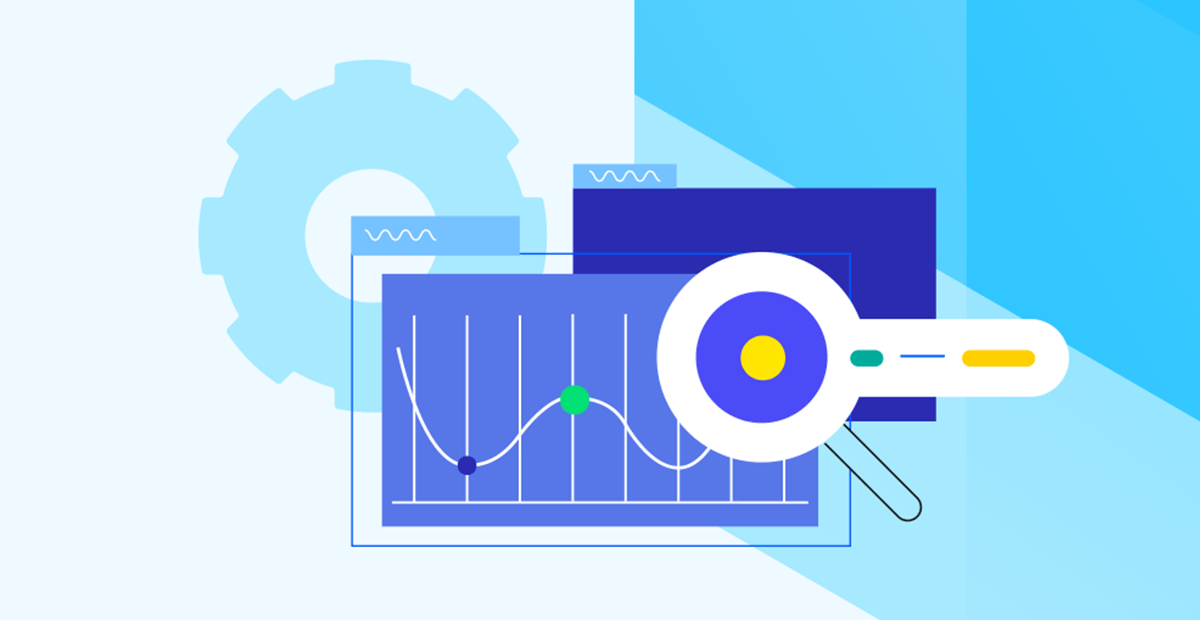New Features and Enhancements

MarkLogic Server 12 Early Access: Harness Generative AI with State-of-the-Art Search
Maximize augmented GenAI retrieval efficiency with a comprehensive hybrid search.

Progress Launches Data Cloud
Remove the infrastructure complexity and IT overhead of setting and managing MarkLogic and accelerate time to production. Progress Data Cloud offers managed hosting of MarkLogic Server and MakLogic Data Hub for enhanced security and scalability—all with 100% feature and capability parity.
Latest Features Across the Portfolio
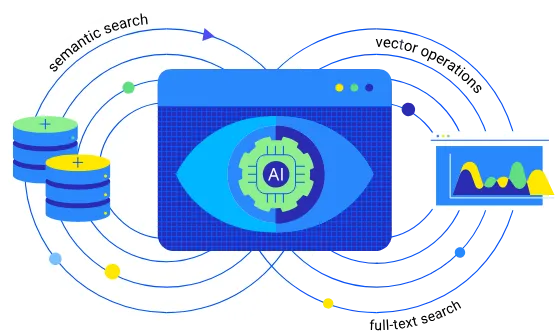
MarkLogic Server 12 Early Access
Flexible Analytical Queries with Virtual Views
Run complex analytics cost-effectively at scale with relational views generated at query time.
Native Vector Operations
Natively perform vector operations in MarkLogic Server to significantly enhance Generative AI retrieval accuracy.
Enhanced Text Search with Best-Match [BM25] Relevance Ranking
Boost full-text search recall with better document ranking to return the most relevant search results at the top.
Advanced Semantic Search with Graph Shortest Path Algorithm
Solve real-world problems related to route planning, network optimization and resource allocation.
Additional Resources
MarkLogic Server 11 Series
MarkLogic Server 11.3
- First Long Term Support release
- Rootless Mode with Docker Image 2.0
MarkLogic Server 11.2
- Optic API Update GA. Patch and Error Handling.
- OAuth 2.0 JWT OIDC (Open ID Connect) Support
- Admin UI Dynamic Data Fetching
- Queue Size Metrics
- Elastic Load Balancer Support in XCC
- Progress® Semaphore™ Integration
- Progress® Corticon™ Integration
MarkLogic Server 11.1
- XQuery and Node.js Support for Optic Update (Technical Preview)
- Reverse Proxy and Load Balancer Path-Based Routing
- Forest Memory Diagnostics
- PKI and KMS Auditing
- New Full-Width UI Banner
- AWS CloudFormation Template (CFT) Improvements
MarkLogic Server 11.0
- New Look and Feel and Improved Accessibility
- GraphQL
- Optic Geospatial
- Optic Update (Technical Preview)
- Adaptive Memory Algorithms for Optic Sorts and Joins
- Storage Failure Detection and Failover
- Enhanced Health Check Monitoring
- HTTP Compression and Chunking
Virtual Views for Ad-Hoc Analytics
Analyze and explore your data quickly and cost-effectively with Virtual Views. Virtual Views are relational projections of document data you can generate on demand. Optimized for ad-hoc reporting or repetitive calculations, Virtual Views allow you to run large-scale analytical queries without incurring the operational and resource cost of reindexing data.

Native Vector Operations
Store vector embeddings close to your data in JSON or XML format and enable large-scale similarity searches for GenAI systems on vast amounts of unstructured data. Complement with full-text queries through Optic API for the highest quality, trustworthy results, significantly reducing computational costs.

Enhanced Text Search with Best-Match [BM25] Relevance Ranking
Combine best-match relevance and vector calculations to re-rank results for optimal search accuracy. The comprehensive search capabilities of MarkLogic Server allow you to combine text-based and similarity-based queries, merge result scores and re-rank them with a single expression via its Optic API that parses the content most relevant to a user query to the LLM model.

Advanced Semantic Search with Graph Shortest Path Algorithm
Improve the contextual relevance of results and response time in graph RAG systems by effectively identifying the most relevant documents or phrases to answer a user or LLM-generated query. Find the most cost-effective or time-efficient solutions to route planning, network optimization and resource allocation.

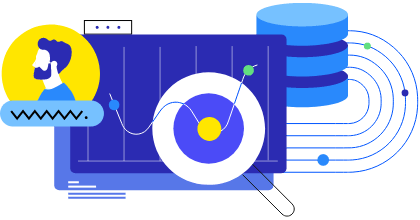
Build Better Conversational Experiences
ChatBot Component
Easily integrate a customizable ChatBot component into your AI-enhanced React applications, removing the need for custom coding in MarkLogic.
Sample AI App
Get a blueprint of how to integrate an LLM model like Azure OpenAI with the FastTrack ChatBot component and Node.js Express. Code snippets included.
ExportData Component
Export displayed results to a CSV, JSON or XML file with the click of a button.
Hover Effect on Results
Add a highlight effect on mouse hover to your results display with the new event handlers for the ResultsSnippet and ResultsConfig components.
Configuration Argument in MarkLogicContext
Add request configurations such as timeouts, headers and parameter serialization, helping you flexibly meet different requirements.
Additional Resources
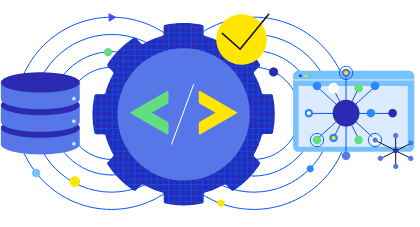
Enhance the Quality and Contextual Awareness of Your Data
Knowledge Model Import
Enrich your documents with semantic relationships and easily build richer knowledge graphs.
Watch Demo
Smart Collector
Intelligently update your knowledge repository with new information, skipping over previously loaded documents.
Watch Demo
Enhanced Knowledge Graph Visualization
Reveal new insights on domain knowledge with a user-friendly connected data exploration experience that intuitively follows your process.
Global Settings
Apply uniform provenance, validation and data access rules once and from a single location across all flows and models.
Debug Manager
Investigate and troubleshoot current activity in the system when you experience unusual behavior.
Additional Resources
Knowledge Model Import
Import semantic knowledge models from Progress Semaphore or other sources to the MarkLogic Data Hub and use them to model relationships within your entities. This enables you to enrich your documents with semantic context and quickly build richer knowledge graphs directly in the MarkLogic platform.
Schema Modeling
Model your data against externally defined schemas, including semantic knowledge models from Progress Semaphore to add and define relationships between entities.
Model Exploration
Query the new documents using an SQL view generated based on the uploaded JSON or XML schema, providing detailed information for the relationships between entities.
Knowledge Graphs
Enhance your knowledge graph with structured semantic data, enriching your graph’s ability to handle complex relationships, queries and reasoning.
Smart Collector
The Smart Collector feature in Data Hub 6.2 hashes documents as they are loaded to identify previously loaded documents and avoid reprocessing them, saving processing time. For example, if you are loading 600 documents into MarkLogic Server, the Smart Collector will successfully identify and skip previously loaded documents, reducing the total number of documents processed in one go.
Document Hashing
The Smart Collector hashes documents as they are loaded into the Data Hub. This allows the system to recognize if a document has been previously loaded, preventing duplicate processing.
Processing Efficiency
The Smart Collector saves significant processing time by only processing new documents. This is particularly useful when dealing with large sets of documents where some may overlap.
Flexible Settings
The Smart Collector can be enabled or disabled globally or for individual steps. This flexibility allows users to tailor the feature to their specific needs and workflows.
Enhanced Knowledge Graph Visualization
A cleaner, crisper presentation of semantic data models helps you intuitively explore extremely large, connected data and draw insight faster. Now you can now zoom in on individual nodes in the Explore Module and the screen will automatically remove the "noise" around your data point of interest so you can focus on the smallest detail. The new entity grouping feature helps you organize your data landscape into data subsets with easy dragging and dropping, while decluttering your view and simplifying the complexity of the graph.
Zoom In and Out
Navigate your knowledge graph and expand individual data points to declutter the view of your hairy graph dataset.
Draw relationships
Connect nodes in your knowledge graph with a simple draw motion directly in the graph visualization UI.
Entity grouping
Arrange data points in your knowledge graphs in clusters with easy dragging and dropping to organize and simplify your view.
Global Settings
You can now centrally manage Provenance, Entity validation and Target permission settings through the Global Settings menu in the MarkLogic Data Hub. The new Global Settings menu allows you to set and configure properties to apply across the entire application.
Provenance
You can choose between coarse-grained, fine-grained or no lineage.
Entity validation
Part of the curation flow, the validation setting enables you to decide how strictly you want to force data to conform to the entity definition.
Target permissions
Apply to the output of every step that doesn't have its own target permissions setting. For example, you can give users permission to the mapped data only but not the raw data in the staging database.
Debug Manager
You can now perform diagnostics on the MarkLogic Data Hub when it does not behave as expected. The new debug task allows you to initiate a system log displaying all current activity so you can quickly see the most recent jobs, connection status to the application server as well as the latest created user roles and entities.
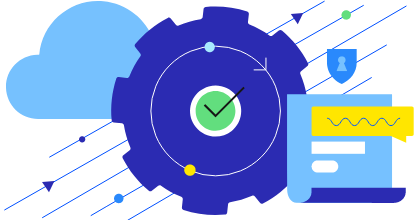
Streamline Data Operations for AI
Splitting Documents
Prepare your data for AI use cases and improve the quality of your vector searches while reducing LLM token consumption with out-of-the-box document splitting functionality.
Adding Vector Embeddings
Build a data pipeline to power your semantic RAG by adding vector embeddings to MarkLogic Server alongside operational data without the need for custom code.
Enriching with Semantic Metadata
Elevate hybrid retrieval with rich metadata—extract text, classify content and configure metadata values directly on import or via transformations for cross-query.
Additional Resources
Splitting Documents
With the new splitting capability, you can provide just the right amount of content necessary to answer a user query. Set character length or split based on XML/JSON elements and the amount of chunks you want created. Store chunks alongside their original position or in separate documents linked to the original, preserving context and relevance
Adding Vector Embeddings
With the new embedding capability, you can leverage out-of-the-box implementations using LangChain4j and foundational LLM models like Azure OpenAI to generate and store vector embeddings in the source document in MarkLogic Server during import or copy. Complement with early access to vector operations to index and run similarity queries based on the user question.
Enriching with Semantic Metadata
With out-of-the-box semantic classification and metadata configuration capabilities, you can apply a true hybrid search with multiple facets. Extract text, tag documents and chunks in Progress Semaphore and configure additional metadata values. Store extracted text alongside metadata about the original source, the corresponding vector embeddings and the classification tag in a single chunk to cross-query for optimal retrieval precision.
New Features and Enhancements
Build Better Conversational Experiences
Watch DemoNew Features and Enhancements
Enhance the Quality and Contextual Awareness of Your Data
Watch DemoTalk to an Expert
Migrating or upgrading to a current software version? Contact Progress Professional Services and get upgrade support from our team of consultants or find a MarkLogic implementation partner.
Learning & Resources

Get Started with MarkLogic
Get a personalized demo or start a proof-of-value with our team.



